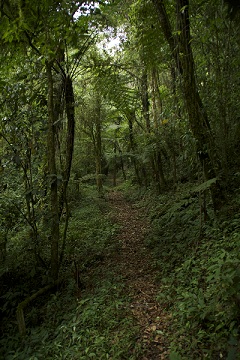Keeping the balance: people and nature

Related topics
Environment & climate action Portugal Spain United Kingdom Climate action Environment Norway Colombia Mexico Argentinadate: 12/06/2014
Project: COmmunity-based Management of Environmen...
acronym: COMET-LA
See also: CORDIS
Contact: Contact
“Think local” was the starting point for COMET-LA, which is devising strategies – using case studies – to identify sustainable governance models that fit with individual communities’ environmental problems. The goal is to describe key factors for sustainable management that could be implemented by any local population. The project has studied the specific problems in three very different regions in Latin America, although the methodologies developed could eventually be applied anywhere in the world.
People and nature – a constant balancing act
Key to the project is the concept of ‘social-ecological systems’ – the way in which we interact with our environment. “People and nature interact continuously, with both positive and negative results,” explains Delgado. “But the systems are very complex, so the impact can be unexpected or even the opposite of what is expected.”
For example, if a dam is built to protect people living on riverbanks, the way the water flows is changed. This can damage certain species of fish and aquatic life. The intention is to protect people, not to harm nature – but nature pays a price nonetheless.
When COMET-LA began in 2012, one of the first priorities was to characterise the three regions’ social-ecological systems. All have very different problems:
- Santiago Comaltepec, Mexico, is a small forest community with a strong focus on preservation. As there is no other source of income or jobs apart from the forest, many people migrate. The challenge is to find a balance that works for people and the environment.
- Alto y Medio Dagua and Cuenca Baja del Río Calima are in the Chocó region of Colombia, known internationally as one of the planet’s most biologically diverse areas. Their economies are based on the exploitation of natural resources such as forests, minerals and biodiversity. Access to natural resources, their overexploitation, infrastructure, water, illicit crops and illegal armed groups are all sources of social-environmental conflict.
- Argentina’s Bahía Blanca Estuary and the adjacent coasts of Pehuén Co and Monte Hermoso are home to several artisanal fisheries. A combination of overfishing, changes in water and air temperature and drought have reduced catches. Although this had been predicted, decision-makers reacted late.
Local solutions to local problems
Key to the success of COMET-LA has been the involvement of local people from all three locations. “Beforehand I thought it could be a bit difficult,” admits Delgado. “But I’m really happy to have this opportunity to discuss the research with local leaders. If local people are not involved, you don’t get the result you want, which is local sustainable management models.”
It took time to build a relationship. The communities were used to more ‘productive’ projects, providing goods or money for example. “Here we were discussing something that will only deliver intangibles,” says Delgado.
But with trust and mutual respect in place, the locals are happy. “They know that we’re not extracting information from them, but giving them knowledge and capacity,” she adds.
The results are already evident – indigenous communities in Mexico and Colombia are now able to carry out their own analysis of their region’s social-ecological system, adjust the variables and build scenarios.
During fieldwork, people from the communities have also visited their counterparts to discuss common problems and potential solutions. Delgado is certain that this network will continue beyond COMET-LA.
This contact between communities has also encouraged more women to take part in decision-making. In Mexico, raised awareness and a visit from a strong Colombian women’s leader have led to local women starting to demand a greater role.
Interest in the project is growing, with Colombia’s Humboldt Institute already planning to use the COMET-LA methodology. Delgado is confident that the methodology could actually be applied anywhere in the world – so confident that she has signed a research contract to adapt the methodology for use in European territories.
This will be a challenge she admits, but is undeterred: “We’ve created a ‘learning arena’ where people can share knowledge. That can be done anywhere if people are willing. And we’ve developed a way to characterise interaction between people and nature – this also happens everywhere.”
In addition to the knowledge and know-how passed on to the three communities involved in COMET-LA, the project team hopes to influence national governments – making clear what policies people need – plus international institutions and NGOs, who need to understand the importance of working at the local level, says Delgado.
